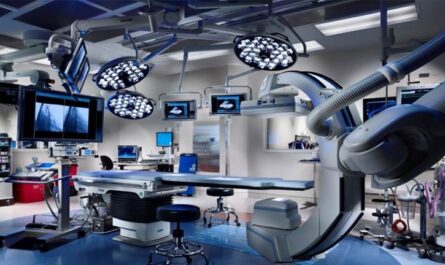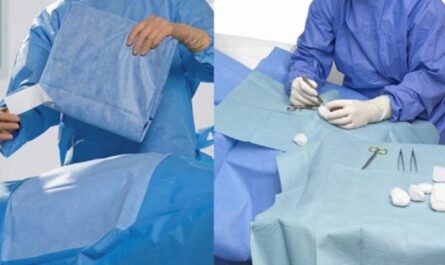Introduction to Cell Therapy Manufacturing
Cell therapy is an advanced type of treatment that involves transplanting human cells into patients to treat diseases. These therapies involve processing and preparing different types of human cells such as stem cells, immune cells, and progenitor cells. The manufacturing of cell therapies requires sophisticated and regulated facilities that can reliably produce cells at scale and with consistent quality. This article will discuss some of the key aspects of cell therapy manufacturing including production processes, quality control testing, and recent advances that are enabling these treatments to help more patients.
Quality Cell Production through Standardized Processes
One of the biggest challenges in cell therapy manufacturing is developing standardized and reproducible production processes that can deliver high quality cells each time. Many cell therapies are personalized medicines where cells must be grown from a patient’s own tissue sample which introduces variability. Manufacturers have addressed this through implementing quality management systems and control procedures into every step of the manufacturing process from receipt of raw materials through final packaging and release. Advanced process analytical technologies are also helping automate and standardize critical manufacturing steps like cell isolation, expansion, formulation, and cryopreservation. Through rigorous process development and validation, manufacturers are demonstrating they can consistently produce cell therapies that meet pre-defined release criteria regarding purity, viability, identity, and sterility.
Quality Control Testing Safeguards Patient Safety
Before any cell therapy can be administered to patients, it must undergo extensive quality control testing to ensure safety and efficacy. Manufacturers perform a battery of tests at different stages of production including testing cell phenotype, sterility, identity, viability, quantity, and purity. They may also test for process-related impurities like residual reagents or host cell proteins. New technologies like next generation sequencing are allowing for more comprehensive characterization of cell therapies down to a molecular level. Comprehensive testing and release specifications help assure any manufactured batch meets predefined standards before distribution. Continuous process monitoring and product tracking from receipt of starting materials all the way through to administration to patients is also crucial for quality assurance.
Manufacturing Automation and Closed Systems
As cell therapies transition from clinical trials into commercial production, manufacturing processes need to become more scalable, automated, and operate in closed environments. Traditional manufacturing methods involving manual cell processing are inefficient and pose contamination risks at larger commercial scales. Advanced manufacturing technologies like single-use closed bioreactors, automated fluidics handling, and process analytical technologies are helping automate historically manual tasks and move manufacturing into closed environments. This not only improves production scalability but also reduces costs and human errors while maintaining sterility. Fully closed and automated “lights-out” manufacturing systems will be crucial for producing many cell therapies at the multi-dose levels required for broader patient access.
Addressing Challenges of Cell Distribution and Storage
For cell therapies to reach all patients in need, manufacturers must also overcome challenges in distribution, storage, and administration of living cell products. Most cell therapies have very short usable shelf-lives often necessitating shipping on dry ice by expedited delivery. New cryopreservation techniques coupled with tracking technologies are helping extend shelf-life. Some therapies are also developing strategies for stable off-the-shelf storage using lyophilization or stabilization techniques. Cell thawing methods also require careful control and validation. With enhanced logistical capabilities, more cell therapies could potentially be stored and shipped directly to hospitals and infusion centers rather than requiring administration only at large treatment facilities. Together these advances in manufacturing, storage, and distribution will be key to fully realizing the promise of expanded global access to cell therapies for patients.
Adopting Advanced Manufacturing Technologies
As the cell therapy field continues to rapidly evolve, manufacturers are adopting a range of emerging manufacturing technologies to support next generation therapies such as gene edited CAR-T cell therapies and stem cell products. Advances in Continuous Processing technologies allow for transitioning batch mode manufacturing into more scalable approaches like perfusion bioreactors with steady state cell culture. Use of closed single-use bioprocess container systems also allows increased flexibility in capacity scaling in manufacturing facilities. Cell therapy manufacturers are leveraging bioprocess modeling tools to accelerate process development lifecycles and guide continuous manufacturing approaches. Technologies like machine learning and automation with quality by design principles will also guide the development of future cell manufacturing paradigms capable of achieving the standardization, scalability and cost-of-goods targets needed for broader patient access to these life-changing therapies.
The manufacturing of advanced cell therapies is an intricate multidisciplinary endeavor requiring sophisticated control of biological processes and systems. Cell therapy production has evolved significantly in recent years through implementation of quality management practices, automation, closed systems approaches and emerging technologies. Continued innovation in process technologies, quality control testing, and distribution logistics will be key to fully unlocking the potential of cell therapies to treat various diseases. As the field advances, increased focus on manufacturing economics and scale-up will also be important for enabling affordable and global access to these transformative new medicines. With further improvements, cell therapy manufacturing promises to deliver transformational treatments to many more patients worldwide.
*Note:
1. Source: Coherent Market Insights, Public sources, Desk research
2. We have leveraged AI tools to mine information and compile it




